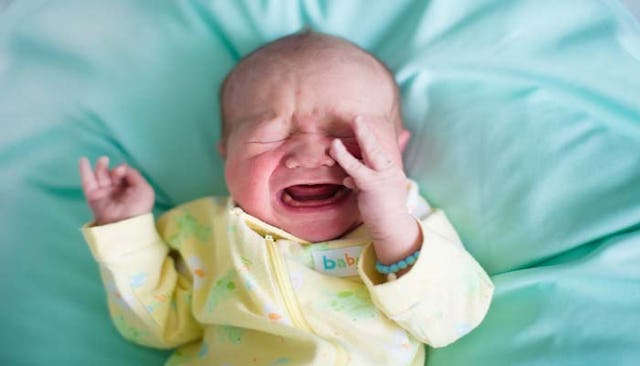No, Maternity Wards Abandoning Nurseries Isn't 'Good For Moms'

Hospitals are abandoning nurseries in an effort to become more “baby-friendly”
For women who are recovering in hospital after the birth of a child, nurseries often provide some much-needed rest for exhausted — and in many cases, post-op — moms. But as the Boston Globe reported this weekend, there’s been a shift in the way hospitals are responding to women who’ve just given birth. In many Boston hospitals, nurseries are becoming a thing of the past, in favor of newborns rooming in around-the-clock.
“The shift is part of a national movement designed to promote breastfeeding, bonding, and parenting skills by having mothers and healthy newborns room together around-the-clock, attended by nurses who look after their needs,” writes Liz Kowalczyk, Globe staff writer. “Many postpartum specialists now believe that nurseries, long a life raft for recovering mothers, is not the best, or most natural, way to provide care.”
Are these postpartum specialists moms recovering from c-sections who can barely lift themselves off a bed, let alone their newborns out of a bassinet? Then all due respect, but they should STFU.
The national movement is taking a cue from the World Health Organization’s Baby-Friendly Hospital Initiative. It’s goal is “to encourage and recognize hospitals and birthing centers that offer an optimal level of care for infant feeding and mother/baby bonding.” An explanation of the initiative states, “Becoming a Baby-Friendly facility is a comprehensive, detailed and thorough journey toward excellence in providing evidence-based, maternity care with the goal of achieving optimal infant feeding outcomes and mother/baby bonding. It compels facilities to examine, challenge and modify longstanding policies and procedures.” That all sounds good. But it all centers around a push for breastfeeding which not every woman has a desire to undertake.
“Women seeking a few hours of rest after hours of labor or a caesarean section often are surprised to learn that Massachusetts hospitals are increasingly restricting nursery access or, in some states, have closed the nurseries altogether,” writes Kowalczyk. Hospital leaders are backing initiatives to close nurseries and room-in babies. But nurses on the front-lines don’t necessarily agree. They say a few breaks in breastfeeding won’t do any lasting damage and that rest is important to keep mothers healthy and prevent postpartum depression.
Initiatives like these always start with some potential, then quickly move into a territory where moms are being infantilized and not allowed to make decisions for themselves. Yes, it’s great to be supportive of rooming-in, if that is what a recovering mother wants. But the option to rest should always be there. So should the option to feed a child formula. We are finally getting to a point where hospitals aren’t shoving formula samples down a new mom’s throat. Let’s not let the pendulum now swing too far in the other direction by essentially guilting mothers who want the rest a nursery provides, or who don’t need to be with their infant 24/7 after an exhausting surgery because they don’t plan on breastfeeding.
Childbirth can be very overwhelming, especially when you are recovering from major surgery. The last thing a new mom needs is a hospital deciding what’s “best” for her and not allowing her the rest she needs to recover.
Rooming-in helps with bonding, breastfeeding, and parenting skills. Great! If women are up to it, they should totally do it. But if they’re not, not even giving them the option forces them to soldier on in silence, which is basically the root of the problem with the way we address postpartum moms who need some help. There is nothing wrong with needing some rest after an entire human exits your body or is literally sliced from your womb. There’s also nothing wrong with deciding that breastfeeding isn’t right for you. Offering room-in support is fantastic, but making rooming-in mandatory for new moms unless they have some medical issue a hospital deems worthy of help is absurd. Going through the experience of birth should be reason enough.
And no one but a mother should decide whether she needs that extra help or not.